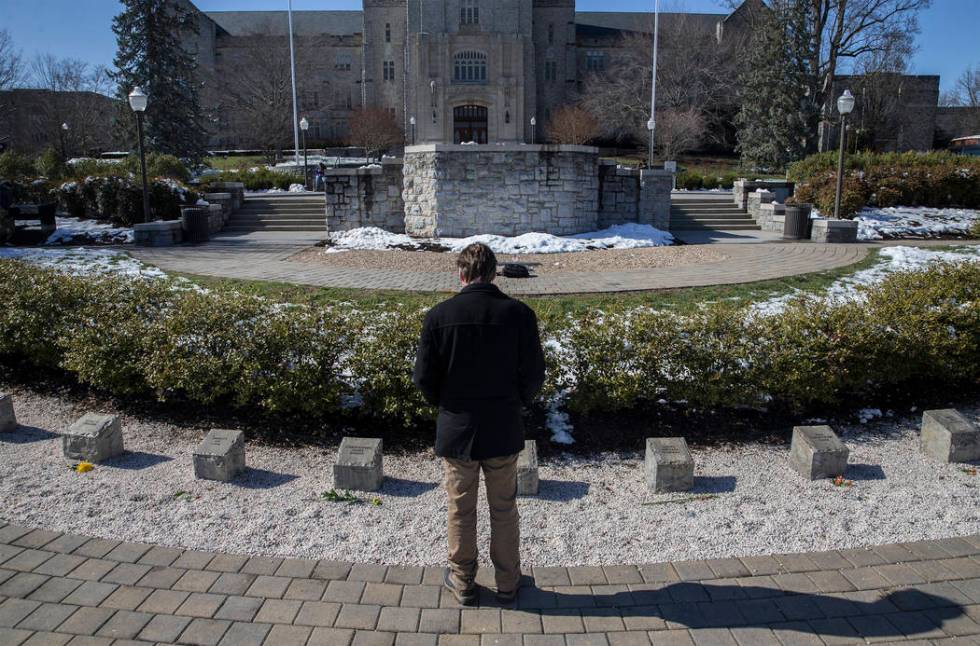Virginia Tech memorial sprung from response by students

BLACKSBURG, Va. — On a recent March day, snow blanketed this field at the center of Virginia Tech’s campus, which — morning through evening— students trudged across, over and over.
Some talked with friends and laughed along the way. Others quietly stared at their phones. Each passed the powerful Virginia Tech memorial — 32 hunks of indigenous limestone, or “Hokie Stone,” carefully arranged into a semicircle.
The first version was much simpler, born hours after the massacre. Without thought or planning, students came together to haul a different set of hunks of Hokie Stone, snagged that night from a campus construction site.
It was no small feat. These stones are extremely heavy.
“To carry one, it would take a person wholly dedicated,” Mark Owczarski, the university’s spokesman, told the Las Vegas Review-Journal. “It was an act.”
Hokie Stone is no ordinary rock. It’s a material used in the construction of nearly every building at Virginia Tech. Take one look around this campus and you’ll be hard-pressed to find a spot where it isn’t visible.
“It’s strong, it’s solid, and there’s a lot of history behind it,” Owczarski said.
So when it came time for the university — with the input of victims’ families, survivors, students and faculty — to decide on a permanent memorial, the answer lay “with what the students did that very first night.”
“In our case, we came to consensus literally instantaneously,” Owczarski said. “Because the guiding force behind it was the genuine expression of sorrow on that day. Why mess with it?”
For the permanent memorial, the stones placed here that night were professionally replaced with much bigger versions, drilled into the soil to guarantee they would stand the test of time. Each one now bears a plaque with the name of the victim it represents.
The hall where most victims died still stands. It was repainted and remodeled and now houses the university’s Center for Peace Studies and Violence Prevention.
“What a perfect name for that program, to be in that building,” Joe Samaha, whose daughter Reema was killed in the shooting, said to the Review-Journal.
The decisions made after the 2007 tragedy made sense for Virginia Tech, Owczarski said. He hoped that, in due time, Las Vegas finds its own way to honor and remember victims.
“It’s impossible to draw comparisons. It’s impossible to try and equate all of this,” Owczarski said. “Every community … will discover and find what’s right for them.”
Contact Rachel Crosby at rcrosby@reviewjournal.com or 702-387-5290. Follow @rachelacrosby on Twitter.